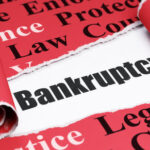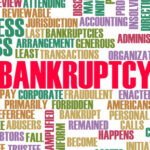Tag Archives: Miami Bankruptcy Attorneys

What Is a Chapter 13 Confirmation Hearing?
In a Chapter 13 bankruptcy case, a debtor is required to submit a repayment plan to the court. But submitting the plan is only the first step. The debtor’s creditors, as well as the trustee overseeing the bankruptcy estate, have the right to review the proposed plan and note any exceptions or objections with… Read More »

How Will Bankruptcy Affect My Credit Report?
A common question many people have about the bankruptcy process is the effect it will have on their credit report. The Bankruptcy Court itself has nothing to do with credit reports, which are maintained by private agencies. But federal law still governs how long these agencies can maintain a public record of your bankruptcy,… Read More »

When Are Credit Card Debts Unenforceable in a Chapter 13 Bankruptcy?
Many Florida residents file for Chapter 7 or Chapter 13 bankruptcy due to mounting credit card debt. But before you seek bankruptcy protection, you should know that depending on how old your credit card debt is, the lender may have no legal recourse against you. This is because credit card debt is subject to… Read More »

Can I Get in Trouble If I Lie to My Creditors?
A Chapter 7 bankruptcy is designed to give a debtor a fresh start by discharging any outstanding debts, such as civil judgments obtained by creditors. But there are limits to what a bankruptcy court can and will discharge. For instance, federal law prohibits a debtor from discharging a debt obtained through “false pretenses, a… Read More »

How Chapter 13 Bankruptcy Can Help You Keep Your Home
If you have fallen behind on your mortgage payments, filing for Chapter 13 bankruptcy may help you keep your home. When you file for bankruptcy, the court issues an automatic stay that immediately stops any pending foreclosure action. Chapter 13 then allows you to “reorganize” your debts and work out a payment plan with… Read More »
Does Chapter 7 Bankruptcy Stop the Bank From Taking My House?
Many Florida homeowners are faced with an “underwater” mortgage—that is, the value of their property is less than what they owe to their lender. If you have an underwater mortgage and file for Chapter 7 bankruptcy protection, an underwater mortgage can protect your house from being sold as part of a liquidation proceeding. But… Read More »
Can Debt Collectors Use Bankruptcy to Collect Older Debts?
In a Chapter 13 bankruptcy, a debtor agrees to pay back some of his or her debts under a plan approved by the bankruptcy trustee and the court. This plan assumes the debts are valid. But in recent years, third-party debt collectors have aggressively used the bankruptcy code to try and receive payment for… Read More »
Can Bankruptcy Eliminate My Tax Debt?
Bankruptcy allows debtors to reorganize or discharge most of their debts. For many unsecured debts, like credit card bills, a Chapter 7 bankruptcy can wipe out the debt entirely. But not all debts are treated the same under the Bankruptcy Code. For example, while you may be able to discharge some tax debt through… Read More »
When Should I Consider Filing for Bankruptcy?
Credit card debt is a fact of life for many of us. And if you are behind on your bills and have started receiving letters from debt collectors demanding immediate payment, you might wonder if filing for Chapter 7 or Chapter 13 bankruptcy is the right move. While bankruptcy does afford many debtors a… Read More »
How an Automatic Stay Protects Debtors in Bankruptcy Cases
An “AUTOMATIC STAY” or freeze on all collection activity is triggered the moment you or your business files a petition for bankruptcy. This is a court order for ALL creditors, or their representatives to immediately cease collection activities. If they fail to do so they must explain why they violated the automatic stay to… Read More »

